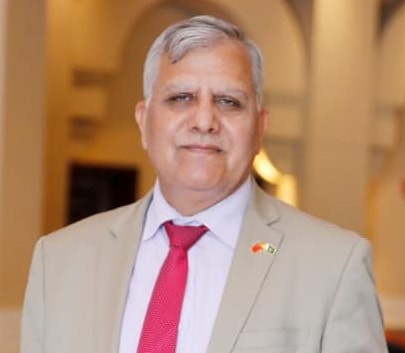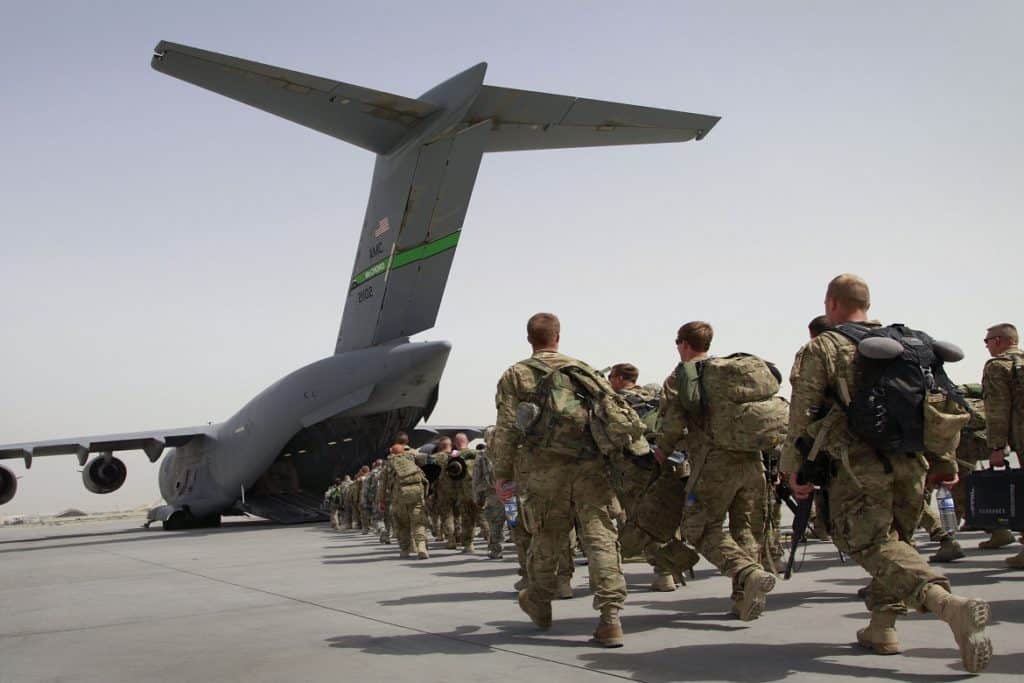By Prof. Engr. Zamir Ahmed Awan
Finally, the US military has cut troop levels in Afghanistan and Iraq to 2,500 each, their lowermost levels in the nearly two decades since the wars began, the Pentagon announced.

Outgoing President Donald Trump, looking to fulfill a campaign assurance to end the two wars launched after the 9/11 attacks, had ordered force levels slashed in both countries to that level by January 15 — despite initial pushback from the Pentagon.
Acting Secretary of Defense Chris Miller said development towards peace in both countries permits the cuts without shrinkage in security for Americans and their counterparts. “Today, the United States is nearer than ever to ending nearly two decades of war and greeting in an Afghan-owned, Afghan-led peace process to achieve a political settlement and a permanent and comprehensive ceasefire,” he said in a statement.
The US annexed Afghanistan on October 7, 2001, in the wake of the 9/11 attacks. The Taliban administration then in place had hosted Al Qaeda mastermind Osama bin Laden.
The regime quickly toppled but launched an insurgency. It has seen a resurgence in recent years, with violence increasing across the country since NATO withdrew its fighting forces in 2014 and civilians paying a disproportionate price.
Under a deal with the Taliban in Doha, Qatar, on February 29, 2020, the US began withdrawing in return for security agreements from the militants and a commitment to peace talks with Kabul.
Pakistan Foreign Minister Makhdoom Shah Mahmood Qureshi welcomed Ustad Mohammad Karim Khalili, Leader of the Hezb-e-Wahdat-e Islami, Afghanistan, and his accompanying delegation on January 12, 2021.
During the meeting, visions were exchanged on Pakistan-Afghanistan relations and progress in the Afghan peace process. The Foreign Minister repeated Pakistan’s consistent support for a peaceful, stable, and prosperous Afghanistan. He accentuated that after the Afghans, Pakistan was the country most desirous of peace in Afghanistan.
The Foreign Minister underlined that Pakistan and Afghanistan’s people were linked through immutable ties of history, faith, culture, and traditions. He reiterated Pakistan’s commitment to strengthening bilateral relations with Afghanistan in all fields. The Foreign Minister highlighted Pakistan’s various steps to enhance bilateral and transit trade and introduce a revised visa policy to assist Afghan nationals.
Foreign Minister Qureshi said Pakistan had always highlighted no military solution to the Afghan war and that a negotiated political solution was the only way forward. He stressed the importance of an inclusive, broad-based, and comprehensive political solution through an Afghan-led and Afghan-owned peace process.
Emphasizing Pakistan’s positive contribution to the various milestones achieved so far, the Foreign Minister reaffirmed that Pakistan would continue to smooth the Afghan peace process. He stressed that the Afghan leadership should grab this historic opportunity to establish permanent peace in Afghanistan through the Intra-Afghan Negotiations.
The Foreign Minister reiterated Pakistan’s call on all sides to reduce violence leading to a ceasefire. He also warned against the role of ‘spoilers’ within and outside Afghanistan, who did not wish to see the restoration of peace in Afghanistan and the region. It is pointed out that Indian National Security Advisor has visited Kabul recently, which followed a series of terrorist attacks, violence and unrest. It is a well-recognized fact that India is not interested in Afghan-peace, as India exploits instability and a war-like situation in Afghanistan to launch terrorism in Pakistan from Afghan soil.
Foreign Minister Qureshi further articulated the hope that the return of peace and stability in Afghanistan would provide a strong impetus to economic development, regional integration, and connectivity, benefitting Afghanistan and the region. Foreign Minister Qureshi also emphasized Pakistan’s commitment to safe and dignified Afghan refugees’ return to their homeland.
Ustad Karim Khalili thanked Pakistan for’s steady support to Afghanistan, particularly in the peace process, and for hosting millions of Afghan refugees for the last many decades. He appreciated Pakistan’s various steps to strengthen trade between the two countries and facilitate Afghan nationals through a revised visa policy.
Chief of Army Staff (COAS) General Qamar Javed Bajwa said that Pakistan would continue supporting the current intra-Afghan dialogue as “peace in Afghanistan means peace in Pakistan,” Inter-Services Public Relations (ISPR) said. According to the military’s media wing, COAS General Qamar Javed Bajwa said this during his visit to Corps Headquarters Peshawar. Appreciating officers and men of Peshawar Corps, the COAS lauded Law Enforcement Agencies (LEAs), including FC and police, for bringing stability in the tribal districts, said ISPR.
ISPR said that the COAS was given detailed updates on the security situation, border management, including fencing, capacity enhancement of FC, and police in newly merged tribal districts resulting from the transition to stability.
Earlier on January 11, ISPR said Chairman Hizb-e-Wahadat Islami Afghanistan and former Chairman Afghan High Peace Council Mohammad Karim Khalili were called on Chief of Army Staff (COAS) General Qamar Javed Bajwa at the GHQ.
According to the ISPR, matters of mutual interest, peace and stability in the region, connectivity, and current developments in the Afghan Peace Process were discussed during the meeting between the COAS Qamar Javed Bajwa and Mohammad Karim Khalili.
The chairman of Hizb-e-Wahadat Islami appreciated Pakistan’s positive role and the COAS vision on Pak-Afghan relations’ future, said the army’s media wing. COAS Quetta Visit: On January 13, a statement released by ISPR said, “at HQ Southern Command, COAS was apprised about prevailing security challenges in the province and the measures taken, including border management Pakistan-Afghan and Pakistan-Iran Border.”
Author: Prof. Engr. Zamir Ahmed Awan, Sinologist (ex-Diplomat), Editor, Analyst, Non-Resident Fellow of CCG (Center for China and Globalization), National University of Sciences and Technology (NUST), Islamabad, Pakistan.
(The views expressed in this article belong only to the author and do not necessarily reflect the editorial policy or views of World Geostrategic Insights).
Image Credit: AP Photo/Musadeq Sadeq







